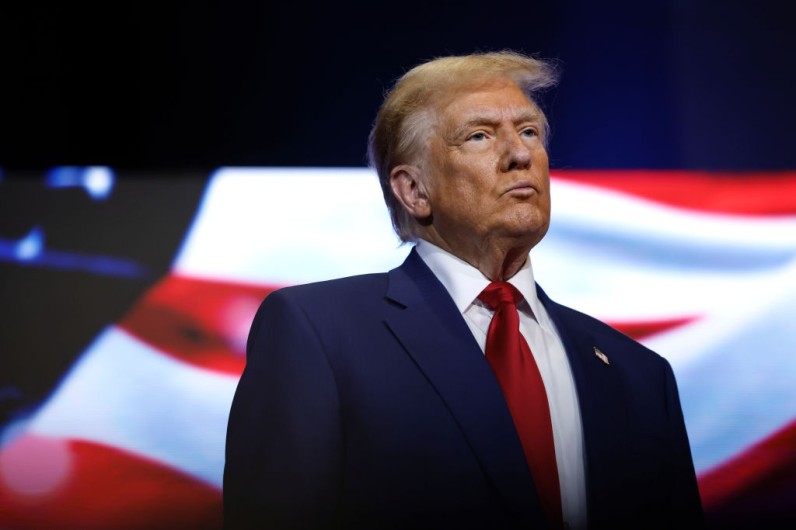
President Donald Trump is standing firm on his controversial decision to implement sweeping global tariffs, defending them as a necessary "medicine" to correct trade imbalances.
His remarks came as financial markets worldwide are facing significant turbulence, with stocks in sharp decline and fears of an economic slowdown mounting.
Speaking aboard Air Force One on Sunday, Trump acknowledged the market chaos but remained resolute, saying, "Sometimes you have to take medicine to fix something."
He brushed aside concerns about a potential recession, adding that the US will not tolerate continued trade deficits with other nations.
The tariffs, which are set to take effect this week, target imports from both allies and adversaries, including countries like Israel, Vietnam, and Italy.
According to AP, Trump's aggressive trade stance has sparked widespread concern globally, with leaders from more than 50 nations reportedly reaching out to the US for talks.
"I spoke to a lot of leaders... They're dying to make a deal," Trump told reporters, emphasizing that the US will no longer accept trade imbalances.
He also pointed out that the tariffs were necessary to fix unfair trade practices, a sentiment echoed by Treasury Secretary Scott Bessent, who stressed that such practices can't be negotiated away in the short term.
Read more: Trump Pauses Tariff Hike on Canadian Metals After Ontario Freezes Electricity Price Increase
Trump's Tariff Plan Faces Bipartisan Scrutiny in Congress
Despite market fears, Trump's economic team remains confident in the policy shift. White House adviser Kevin Hassett explained that the tariffs were part of a long-term strategy to ensure future prosperity, rather than short-term market stability.
He acknowledged that other countries are retaliating but insisted that these measures would lead to a more balanced and fair global trade system.
The US stock market saw further declines over the weekend, with S&P 500 futures down by 2.5% and the Nasdaq losing over 3%.
Asian markets followed suit, with Hong Kong's Hang Seng Index plunging by 9.4% and Japan's Nikkei 225 falling nearly 8%, Tribune said.
The volatility underscores the uncertain economic outlook as the tariffs come into effect.
Trump's decision has also garnered attention from Congress, where some Republicans support his move, while others, like Rep. Don Bacon, have expressed concerns about the shift of trade powers to the executive branch.
A new bipartisan bill has been introduced that would require the president to seek approval from Congress for any new tariffs within 60 days.
Among the critics, Tesla CEO Elon Musk, who has largely been silent on Trump's tariffs, suggested a move toward a "zero-tariff situation" between the US and Europe.
This comment drew criticism from White House trade adviser Peter Navarro, who argued that Musk is merely protecting his business interests.







Join the Conversation